Related Research Articles

The politics of Papua New Guinea takes place in a framework of a parliamentary representative democratic multi-party system, whereby the prime minister is the head of government. Papua New Guinea is an independent Commonwealth realm, with the monarch serving as head of state and a governor-general, nominated by the National Parliament, serving as their representative. Executive power is exercised by the government. Legislative power is vested in both the government and parliament.

The 1993 Canadian federal election was held on October 25, 1993, to elect members to the House of Commons of the 35th Parliament of Canada. Considered to be a major political realignment, it was one of the most eventful elections in Canada's history. Two new regionalist parties emerged and the election marked the worst defeat for a governing party at the federal level and worst ever suffered by a governing party in the Western democratic world. In a landslide, the Liberal Party, led by Jean Chrétien, won a majority government.

The Saskatchewan Party is a centre-right to right-wing political party in the Canadian province of Saskatchewan. Since 2007, it has been the province's governing party; both the party and the province are currently led by Premier Scott Moe. The party was established in 1997 by a coalition of former provincial Progressive Conservative and Liberal party members and supporters who sought to remove the Saskatchewan New Democratic Party (NDP) from power.
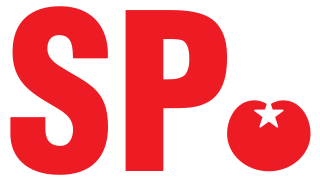
The Socialist Party is a democratic socialist and social democratic political party in the Netherlands. Founded in 1971 as the Communist Party of the Netherlands/Marxist–Leninist, the party has since moderated itself from Marxism–Leninism and Maoism towards democratic socialism and social democracy. The SP has also been described as left-wing populist and soft Eurosceptic, and is an advocate of Dutch republicanism.
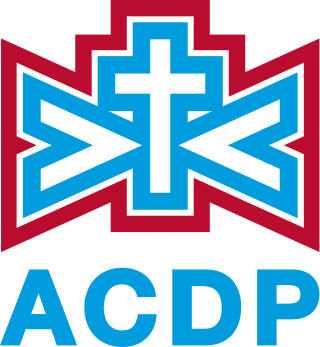
The African Christian Democratic Party (ACDP) is a South African political party founded in 1993. It is a conservative Christian party based on Biblical principles. The leader of the party is Kenneth Meshoe.

The Constitution of South Africa is the supreme law of the Republic of South Africa. It provides the legal foundation for the existence of the republic, it sets out the rights and duties of its citizens, and defines the structure of the Government. The current constitution, the country's fifth, was drawn up by the Parliament elected in 1994 in the South African general election, 1994. It was promulgated by President Nelson Mandela on 18 December 1996 and came into effect on 4 February 1997, replacing the Interim Constitution of 1993. The first constitution was enacted by the South Africa Act 1909, the longest-lasting to date. Since 1961, the constitutions have promulgated a republican form of government.
The Progressive Conservative Association of Alberta was a provincial centre-right party in the Canadian province of Alberta that existed from 1905 to 2020. The party formed the provincial government, without interruption, from 1971 until the party's defeat in the 2015 provincial election under premiers Peter Lougheed, Don Getty, Ralph Klein, Ed Stelmach, Alison Redford, Dave Hancock and Jim Prentice. At 44 years, this was the longest unbroken run in government at the provincial or federal level in Canadian history.

Elections in the Netherlands are held for five territorial levels of government: the European Union, the state, the twelve Provinces, the 21 water boards and the 344 municipalities. Apart from elections, referendums were also held occasionally, but have been removed from the law in 2018. The most recent national election results and an overview of the resulting seat assignments and coalitions since World War II are shown at the bottom of this page.
Canada holds elections for legislatures or governments in several jurisdictions: for the federal (national) government, provincial and territorial governments, and municipal governments. Elections are also held for self-governing First Nations and for many other public and private organizations including corporations and trade unions. Municipal elections can also be held for both upper-tier and lower-tier governments.

The Frisian National Party is a Frisian nationalist political party in the Netherlands. The FNP is mostly involved in Frisian politics. The Independent Senate Group represents the FNP on a national level, the EFA represents the FNP on a European level.

The National Assembly is the directly elected house of the Parliament of South Africa, located in Cape Town, Western Cape. It consists of four hundred members who are elected every five years using a party-list proportional representation system where half of the members are elected proportionally from nine provincial lists and the remaining half from national lists so as to restore proportionality.

Since its establishment in 1947, Pakistan has had an asymmetric federal government and is a federal parliamentary democratic republic. At the national level, the people of Pakistan elect a bicameral legislature, the Parliament of Pakistan. The parliament consists of a lower house called the National Assembly, which is elected directly, and an upper house called the Senate, whose members are chosen by elected provincial legislators. The head of government, the Prime Minister, is elected by the majority members of the National Assembly and the head of state, the President, is elected by the Electoral College, which consists of both houses of Parliament together with the four provincial assemblies. In addition to the national parliament and the provincial assemblies, Pakistan also has more than five thousand elected local governments.

The Western Cape Provincial Parliament (WCPP) is the legislature of the Western Cape province of South Africa. It is located at 7 Wale Street in Cape Town.
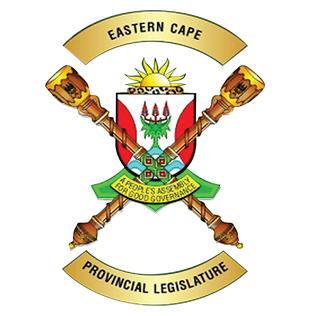
The Eastern Cape Provincial Legislature is the primary legislative body of the South African province of Eastern Cape. It is unicameral in its composition, and elects the premier and the provincial cabinet from among the members of the leading party or coalition in the parliament.
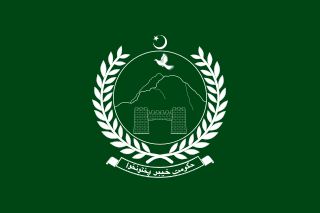
The Provincial Assembly ofKhyber Pakhtunkhwa is a unicameral legislature of elected representatives of the Pakistani province of Khyber Pakhtunkhwa, which is located in Peshawar, the provincial capital. It was established under Article 106 of the Constitution of Pakistan, having a total of 145 seats, with 115 general seats, 26 seats reserved for women and 4 reserved for non-Muslims. The 11th Provincial Assembly of the Khyber Pakhtunkhwa was dissolved on 18 January 2023, and the province is set to elect a new legislature on 8 October 2023.
The New Democratic Party is a federal political party in Canada. Widely described as social democratic, the party occupies the left to centre-left on the political spectrum, sitting to the left of the Liberal Party. The party was founded in 1961 by the Co-operative Commonwealth Federation (CCF) and the Canadian Labour Congress (CLC).
In South Africa, a provincial legislature is the legislative branch of the government of a province. The provincial legislatures are unicameral and vary in size from 30 to 80 members, depending on the population of the province. Each legislature is chaired by a Speaker and a Deputy Speaker.

Provincial elections were held in the Netherlands on Wednesday 2 March 2011. Eligible voters elected the members of the provincial councils in the twelve provinces. These elections also indirectly determined the members of the Senate, since the 566 members of the twelve provincial councils elected the Senate's 75 members in the Senate election on 23 May 2011.
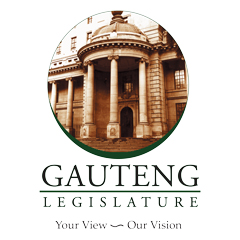
The Gauteng Provincial Legislature is the legislature of the South African province of Gauteng. It is a unicameral body of 73 members elected every five years. The current legislature, the sixth, was elected on 8 May 2019 and has an African National Congress majority of 37 members. The legislature is housed in Johannesburg City Hall in central Johannesburg.
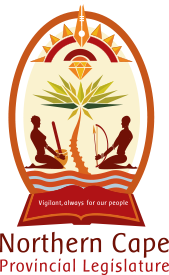
The Northern Cape Provincial Legislature is the legislature of the Northern Cape province of South Africa. It is a unicameral body of 30 members elected every five years. The current legislature was elected on 8 May 2019 and has an African National Congress majority of 18 members. It is situated in Kimberley, in a newly built complex to the west of the city centre on the edge of Galeshewe.
References
- ↑ Art, David (2011). Inside the Radical Right: The Development of Anti-Immigrant Parties in Western Europe . Cambridge University Press. pp. 70–71. ISBN 9780521896245.